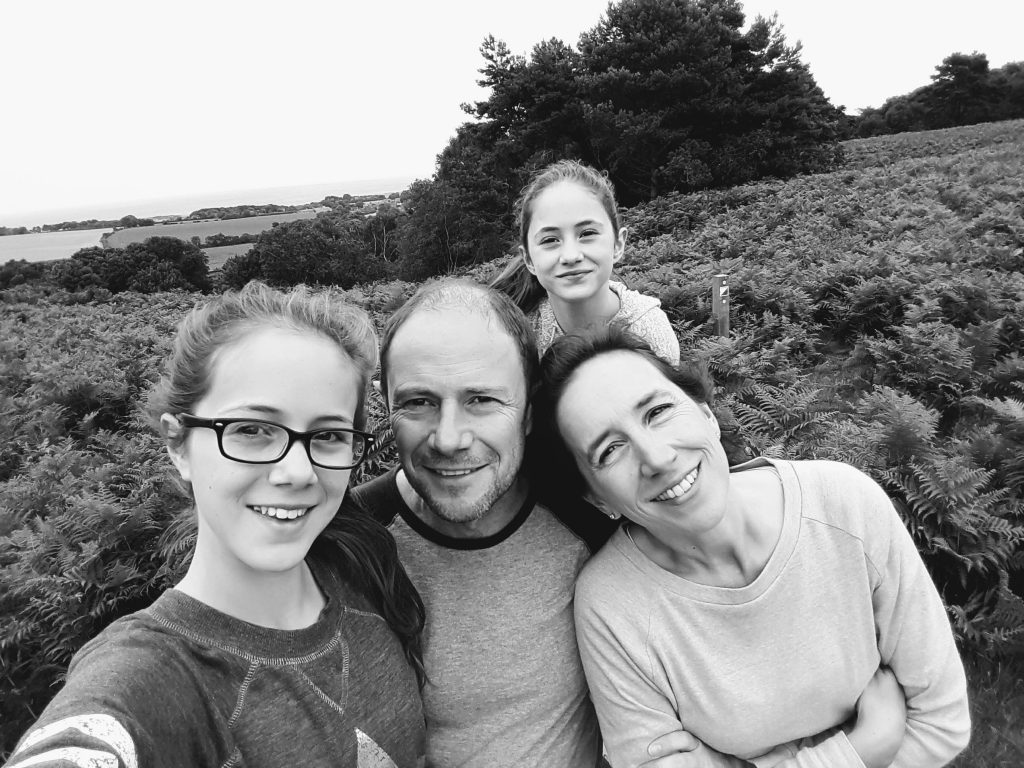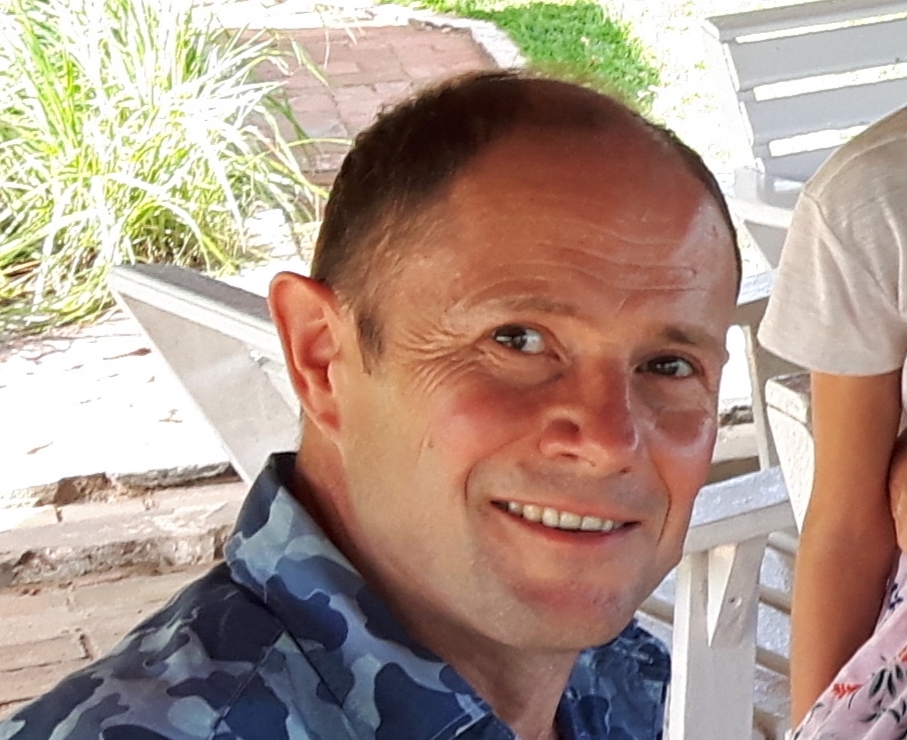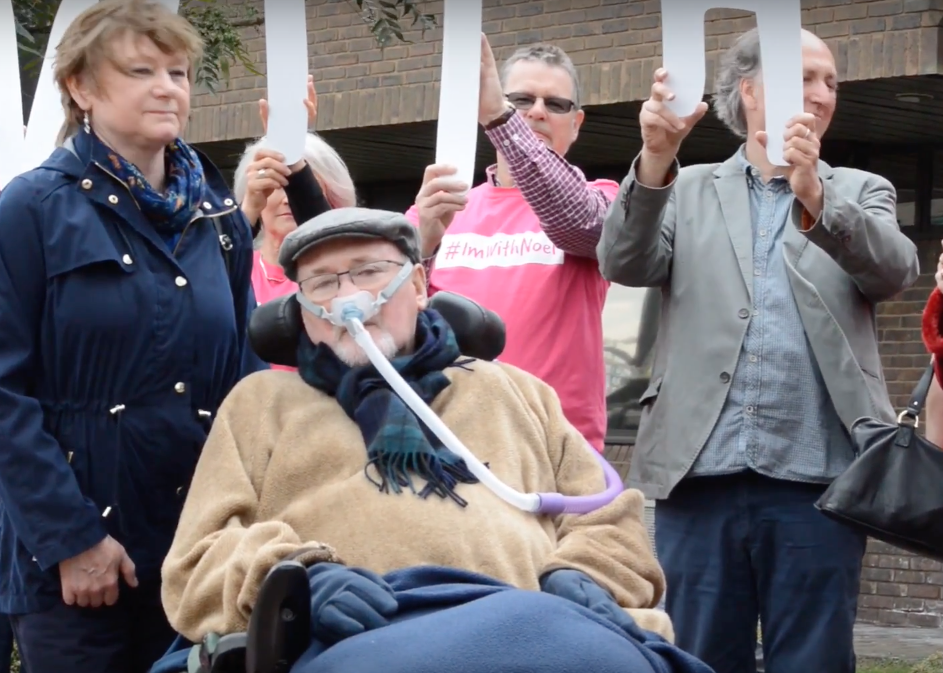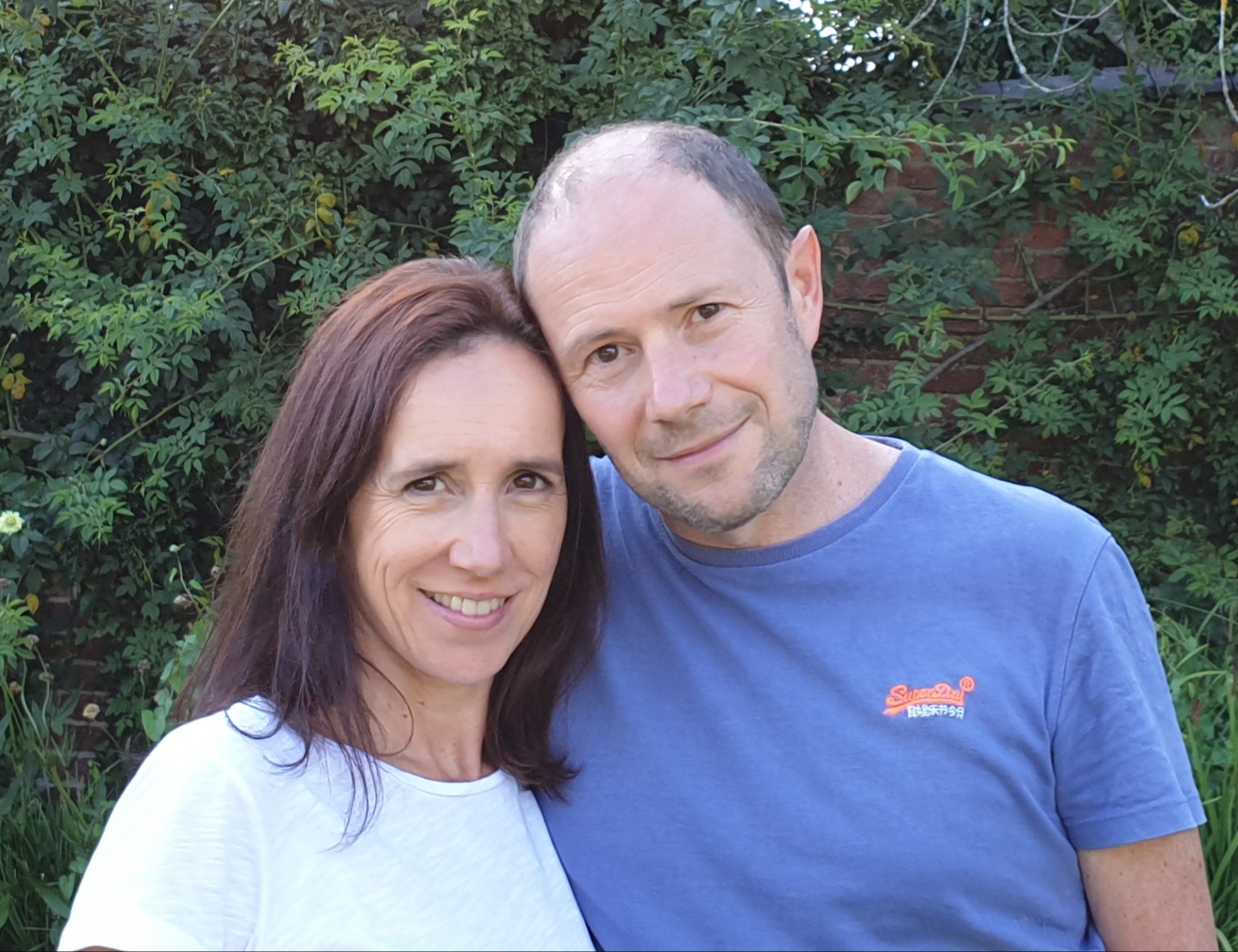“I am not looking to end my life,” says father-of-two Phil Newby, who five years ago was diagnosed with motor neurone disease (MND) – a fatal and incurable illness which causes progressive weakness.
“There is plenty of living still left to do. It’s just, at the moment, the choices are as terrible as they can be.
“I would like a less terrible choice.”
Without medical assistance to end his own life when his condition becomes unbearable, Phil has very few options to die with dignity, he tells RightsInfo. This is why the 48-year-old is launching a human rights challenge against “cruel and out-of-date” laws which ban assisted dying in the UK.
Sitting next to his wife Charlotte in their “Earthship” – an eco-friendly home they built themselves in the scenic Rutland countryside – Phil exudes positivity in spite of his circumstances.
He and his wife met nearly 30 years ago atop a double-decker bus while studying at the former Oxford Polytechnic, now called Oxford Brookes University.
Together they ran a coffee shop in north London and travelled the world while Phil worked with holiday company Thomas Cook, before starting his own environmental consultancy. Now, they have two daughters and several chickens.
She told me that I had a matter of months, at worst, to live. Some years, at best. And that I should really go home and make arrangements.
Phil Newby
Phil first began to suspect something was wrong with his health when he felt some minor twitching and muscle cramps while out running, as well as a weakness in his left thumb. After nine months of neurology appointments, ruling out a number of conditions, Phil was eventually told he has MND.
“It was a very brutal diagnosis, something I will not forget,” he said. “She told me that I had a matter of months, at worst, to live. Some years, at best. And that I should really go home and make arrangements.”
“It was just like being hit by a bus,” Charlotte recalls. “You cannot believe that it has happened. You know it happens to other people but you never think that it is going to happen to you.”
Over the past five years, Phil has gradually lost the ability to walk, to use his hands and lower arms – but his mental capacity is totally unaffected.
“It is very hard to watch somebody who is so vibrant, and busy, and active, not be able to do all of those things that he used to do, that is probably the worst aspect of all of it,” Charlotte says. “But he still has a very active mind and is smarter than the rest of us.”
‘I Would Like A Less Terrible Choice’

Image Credit: Phil Newby.
Facing his own mortality, Phil has explored what options are available to him under current laws – all of which he considers unacceptable.
“I can take my own life. People are allowed to do that,” he said. “I would have to take it before I was totally incapacitated and do it in a way that wouldn’t incriminate my family.
“But also that would subject them to the trauma and the police investigation that would naturally follow.”
He has also considered travelling to another country where assisted dying is legal – such as Switzerland – an ordeal which can cost in the region of £10,000.
“Again, that means I have to leave my own country and travel abroad whilst I am well enough to do both of those things,” he adds.
“I don’t see why, in a country as sophisticated and civilised as our own, which has a world-renowned legal system, a citizen should have to travel to another country to end his or her life.”
Phil’s final option is to let the disease take its course, but he fears he could spend months or even years locked into his own body, his mind still intact.
He says: “Although the medical system can take away pain through palliative care, I don’t think they can take away the anguish that comes with that, and the suffering.”
‘We Should Be Able To Do Better Than That’

Image Credit: Phil Newby.
Euthanasia (deliberately ending a person’s life to relieve suffering) and assisted suicide are both illegal in the UK.
The former can lead to a murder charge, which carries a mandatory life sentence in prison. The latter is prohibited by the Suicide Act 1961, which makes it illegal to “encourage or assist” someone in killing themselves, with a potential penalty of up to 14 years’ imprisonment.
The Human Rights Convention protects the right to life but does not expressly recognise a right to assisted dying. Other rights, such as freedom from inhuman and degrading treatment, the right to respect for private life (including autonomy) and freedom from discrimination, have been used to challenge the prohibition on assisted dying.
The Suicide Act has been challenged, unsuccessfully, on human rights grounds a number of times. Among these is a legal challenge brought by Noel Conway, whose right to die case was rejected by the High Court in 2017.
The judges concluded that the criminalisation of assisted dying is legitimately aimed at protecting the weak and vulnerable, upholding the sanctity of life and promoting trust between doctors and patients. The court also determined that the law achieved a fair balance between the interests of the community and the interests of people in Mr Conway’s position.
Mr Conway appealed the High Court’s decision to the Court of Appeal, which dismissed his appeal in June 2018, and ultimately to the Supreme Court, which refused permission to appeal in November 2018.

Noel Conway arrives at Telford court for start of appeal court challenge. Image Credit: YouTube / Shropshire Star.
Mr Conway’s case formed part of Phil’s motivation to bring a new legal challenge forward, he says. “I thought [the ruling] was not acceptable in a sophisticated society. We should be able to do better than that.”
Phil is raising funds to cover the legal costs of his challenge through online platform CrowdJustice – receiving more than £28,000 so far. He hopes his case will succeed where others have not by following an approach similar to a landmark case in Canada, decided in 2015, which made physician-assisted suicide legal in limited circumstances.
A lack of primary factual evidence has previously been cited by British judges as a reason for not relaxing the “absolute prohibition” on assisted suicide. But Phil’s case would see a team of experts present detailed factual evidence about the risks and benefits of changing the law.
“I don’t see myself as an advocate for assisted dying,” Phil clarifies. “I am an advocate for getting the evidence on assisted dying looked at by some of our most learned people.”
Phil believes that, after looking at the evidence, they will come to the conclusion that the current law contravenes his right to self-determination.
Aside from Canada, assisted suicide is also legal in Switzerland, the Netherlands, Belgium, Luxembourg and Colombia.
We’re going to have to fight the Ministry of Justice and courts tooth and nail just to get this case heard.
Phil Newby
“It has been quite life-affirming,” Phil tells RightsInfo, asked what the experience has taught him so far. “There’s has been some incredible support from friends and from strangers through our crowdfunding.
“It’s also made me a little bit sad that it’s so hard to bring a public interest case in this day and age.
“We’ve had to sweat a great deal to bring a case forward that I think is obviously worthy of discussion without legal aid. To some degree, we’re going to have to fight the Ministry of Justice and courts tooth and nail just to get this case heard.”
Phil has learned that he is not alone in his calls for assisted suicide. He highlights figures from Dignity in Dying, showing that, of the 4,500 people who end their own lives each year, around 300 have a terminal illness.
“By giving people choice, it means they know that they don’t have to endure years of suffering, and fear, and pain,” Phil’s wife Charlotte adds.
“They know that they will have a choice to bring that to an end when they wish, it is as simple as that.”
You can donate to Phil’s CrowdJustice page here.
Want to learn more about this topic?
- Take a look at an overview of right to die cases.
- Read our feature on dignity and its connection with human rights.
- Read our news piece about a right to die campaigner, Omid T, who travelled to Switzerland to end his life.







